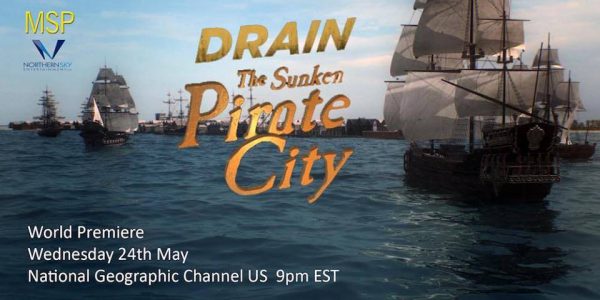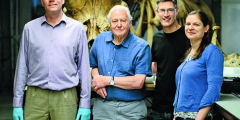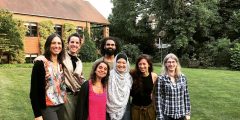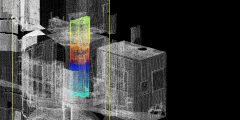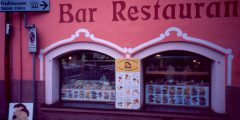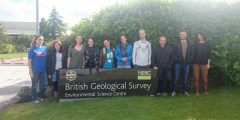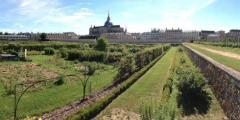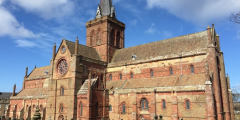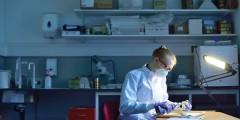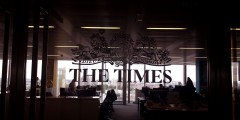Archaeology documentary wins global prize
May 1, 2018
A documentary following the research of Dr Jon Henderson of the Department of Archaeology and Classics has been awarded the Gold Medal for best documentary in the History and Society section at the 2018 New York Festivals World’s Best TV and Film awards ceremony, which was held in Las Vegas this month. The National Geographic documentary Drain the …
Jumbo – a short history of a giant animal
December 11, 2017
Dr Holly Miller briefly explores the history of elephants, and one animal in particular: “The elephant is the largest of them all, and in intelligence approaches the nearest to man. It understands the language of its country… It is sensible alike of the pleasures of love and glory, and, to a degree that is rare among men even, …
When Dance and Science meet – a personal view
July 3, 2017
Recently I was invited to contribute to an Arts Council-funded dance project on human experience ‘Organic Entity’. It combined three choreographers (Anna Watkins, Neus Gil Cortés, Salah El Brogy) and three scientists (me, Julieta Galante and Amanda Williamson) to advise on a triple bill of individual pieces with the themes of Body, Mind and Transcendence. …
Remember Remember the Fifth of November!
November 3, 2016
Searching for Hidden Spaces in Catholic Houses A team of researchers from The University of Nottingham has recently been doing new work at one of the most important places associated with the Gunpowder Plot of 1605. Following the English Reformation, English Catholics were forced to make difficult choices between their loyalty to the crown and …
Missing mushrooms: foraging for fungi in the archaeological record
October 20, 2016
Mushrooms are a common part of modern human diets, yet they are rarely considered from an archaeological perspective. As soft-bodied organisms they readily rot, so are very rarely found on archaeological sites. Search for academic papers on archaeology and fungi and you are most likely to find articles discussing how microscopic fungi eat wall paintings and …
Isotope Investigators Summer School report
August 16, 2016
It’s been an exciting summer in the Archaeology Department, not least because of our Isotope Investigators Summer School! Report by UoN Archaeology students Tom Fox and Phil Rawlinson The Summer School was a five-day programme of work which taught the theory, application and practical lab techniques of isotope analysis in archaeology. With funding from University …
Archaeobotanical Adventures in Paris
August 11, 2016
Hi, my name is Leslie Bode, and I am a 3rd year PhD candidate at the University of Nottingham and am co-supervised between Archaeology (Dr Alexandra Livarda) and Geography (Dr Matthew Jones). I also receive a lot of extra isotope guidance from Dr Angela Lamb at the British Geological Survey. Last month I presented a talk at …
Two go on an adventure to Orkney
May 5, 2016
On the 31st of March Thomas Fowler, studying a Masters (by Research) in Zooarchaeology and Thomas Fox, a BSc Archaeology student went to Orkney to attend their first conference. In fact they went to two: the Association of Environmental Archaeology Conference and the Professional Zooarchaeology Group meeting. This is their story, by Tom Fox. AEA …
Isotope Investigators Summer School
March 1, 2016
Isotope Investigators Summer School – News from our undergraduates We have had an exciting few months in the BioArch Research Group as we planned, and received funding for, our Isotope Investigators Summer School! The Summer School will be held from Monday the 27th June to Friday the 1st July. We will learn all about archaeological …
Working as a science journalist at The Times
December 22, 2015
As the end of year deadline of the Christmas period approaches, teaching is finished and I am trying to catch up with imminent grant proposals, a commissioned book chapter and yet more teaching prep. Thinking purely in terms of putting these tasks off as long as possible, I’ve just realised that I haven’t yet written …

